One aspect of the HOA industry that remains consistent is change. Every year, numerous laws are proposed and adopted in an effort to streamline, modernize, and improve HOAs and the way they operate. 2024 is no exception, several new laws have been signed to solve challenges being faced by both owners and associations. Newly signed bills target diverse aspects such as assessment limitations, innovative voting methods, and remote participation and signify a pivotal juncture in the evolution of HOA regulations.
In this blog we will examine the primary legislation updates for 2024 so your HOA can be prepared for changes in the upcoming year.
Legislations
- Legislation: AB-648 Common Interest Developments: Procedures: Meetings by Teleconference.
Summary: This bill adds to Civil Code Section 4926 and authorizes a board meeting to be conducted entirely by teleconference if certain specified conditions are met. These conditions include a requirement that the notice for the meeting provide clear instructions on how to participate via teleconference, and that each director and member to have the same ability to participate that would exist if the meeting were held in person.
The Short Version: AB-648 enables board meetings via teleconference under specific conditions ensuring equal participation for directors and members as in-person meetings. - Legislation: AB-1458 (TA) Common Interest Developments: Association Governance: Member Election.
Summary: This bill amended the Davis-Stirling Common Interest Development Act and the Corporations Code regarding member elections and quorum requirements. Specifically, it allows associations to adjourn meetings to a date within a specified range (5 to 30 days) if a quorum is not present. During the adjourned meeting, the quorum required for membership meetings would be the number of individuals present in person, by proxy, or via secret written ballot received. This bill provides some flexibility in meeting adjournments and quorum requirements for these associations.
The Short Version: AB-1458 (TA) provides flexibility in meeting adjournments (5 to 30 days) for associations lacking a quorum, establishing a varied quorum during adjourned meetings via in-person presence, proxies, or secret written ballots. - Legislation: AB-309
Summary: Permits the use of electronic ballots for various activities, including electing or removing members of the executive board and voting for delegates representing unit owners in an association. It allows a board member facing removal to request a meeting for discussion. The bill revises notice requirements, allowing votes without a meeting and use of voting machines for such purposes. It also allows withdrawal from an association’s operating account for specific payments and mandates regulations for item transfers upon the termination or assignment of a management agreement.
The Short Version: AB-309 enables electronic ballots for electing or removing executive board members, voting for unit owner delegates, and facilitates discussions for board members facing removal. - Legislation: AB-1572
Summary: California’s State Water Resource Control Board extended an emergency regulation that bans the use of drinking water for watering decorative grass (non-functional turf) in commercial, industrial, and institutional areas throughout the state. This regulation was initially adopted in May 2022 and would have expired in June 2023 if not extended. The ban does include exceptions to grass used for community activities such as recreation, as well as residential lawns or trees. Additionally, the ban does not prohibit using recycled water for irrigating non-functional turf.
The Short Version: California’s AB-1572 extends an emergency regulation prohibiting the use of potable water for non-functional turf in commercial, industrial, and institutional areas. - Legislation: AB-572
Summary: The bill aims to control the extent of increased regular assessments on deed-restricted affordable housing units in common interest developments. If an association records its original declaration on or after January 1, 2025, the bill sets limitations on the imposition of increased regular assessments on owners of deed-restricted affordable housing units. Specifically, it prohibits the imposition of a regular assessment that exceeds 5% greater than the previous assessment or the percentage change in the cost of living, capped at a maximum of 10%. This restriction applies to housing units that are deed-restricted for affordability purposes. However, it excludes developments where 30% or more of the units are occupied by lower income or moderate-income households.
The Short Version: AB-572 regulates increased regular assessments on deed-restricted affordable housing units in common interest developments, restricting assessments for units in associations formed after January 1, 2025.
An Ever-Evolving Industry
In 2024, the landscape of HOA legislation is poised for significant shifts, reflecting a commitment to enhancing governance, protecting homeowner rights, and ensuring equitable treatment within common interest developments. The proposed bills – whether focused on assessment limitations, electronic voting methods, or remote attendance – underscore a pivotal moment in the evolution of HOA regulations.
These changes don’t merely represent legal adjustments; they reflect a deeper understanding of the challenges faced by residents and associations alike. The emphasis on affordability, fair assessments, and streamlined processes acknowledges the diverse needs of community members and strives for inclusivity within these developments.
2024 emerges as a year of transformation, where the regulatory framework surrounding HOAs is adapting to address contemporary needs and concerns. These legislative endeavors aim to strike a balance between the autonomy of associations and the protection of homeowners’ rights, fostering a harmonious environment within common interest developments. Don’t hesitate to contact the HOA industry leaders at The Helsing Group if you need any guidance or assistance navigating new legislation in 2024.



